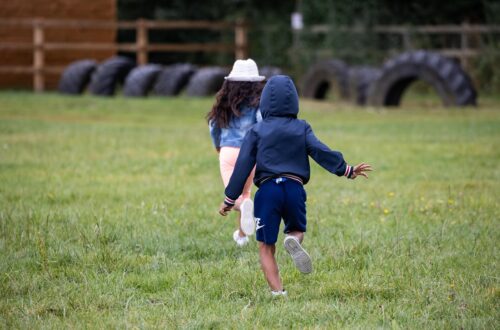
How to help you child against peer pressure
Like many parents, you likely want to help your child stand up against peer pressure. You want them to know what is right and what is wrong. You hope that when they are away from you, even if everyone around them is making a poor choice, they will be smart, safe and kind.
Unfortunately, children, like adults, want to fit in. The need to belong is an innate one, and it is strong. They will be surrounded by other children. Children who like them are trying to work out who they are in a world that feels big and confusing.
What age does peer pressure start?
If you want to help your child stand against peer pressure, it is essential to understand when it begins.
Often, we see peer pressure as an issue that impacts teenagers. In fact, younger children are just as susceptible.
The Picture Book experiment
There was an experiment on four-year-olds. Children were placed into groups of four, and each had a picture book. They sat in booths, able to hear but not see each other. The children were led to believe that each book was identical; however, one in four books was different.
The researchers asked each child to open to the same page, then say what was in the picture. The children with the odd books heard the others answer something different to what they saw. They then had a choice between what the majority believed was true and what they could see with their own eyes. Throughout the experiment, 24 children had an odd book. Eighteen out of the 24 answered incorrectly, siding with the majority.
This means that, at just four years old, the opinions of other people were enough to make them deny the reality that was right in front of them. It is compelling evidence that peer pressure impacts young children, not just teenagers.
Is peer pressure always bad?
Peer pressure is often seen negatively. Positive peer pressure is indeed possible.
Every child will have different strengths and home experiences. Positive peer pressure can help children get out of their comfort zones and be brave enough to try new things. It can normalise differences.
The difference between positive and negative peer pressure will come down to who your child is spending time with. Therefore, it is important to encourage your child to make friends with children who make good choices.
The dangers of peer pressure
Although peer pressure isn’t always bad, it has the potential to be harmful.
If your child has to choose between fitting in with their peers or making a choice they are uncomfortable with, they may experience anxiety or stress.
Furthermore, peer pressure can normalise unsafe or unkind behaviours. This can be even more of a danger when children get older. Teenagers are more likely to experiment with alcohol and drugs if they are subject to peer pressure.
How to help your child against peer pressure
No matter how much we try to protect our children from peer pressure, it is something that they will have to face.
The good news is that there are things that we can do to help them stay strong when the time comes.
Model saying no
Our children learn a lot from observing us. They often mimic the behaviours that they see us model. If you are brave enough to stand up for what you believe, your children may feel empowered to do the same.
Role play conversations
When several children are pressuring your child to make a certain choice, they may feel overwhelmed. Being able to choose to make their own choice and then put that into words is not always easy. It can help to role-play situations your child might face. Help them find words that they feel comfortable saying, and get them to practise using them.
Build up their self-esteem
To stand strong in their beliefs, a child needs a strong sense of who they are. Children with low self-esteem are more likely to seek validation from their peers. Build up their self-esteem as much as you can. By doing this, you are strengthening your child against peer pressure. Building up self-esteem isn’t just about praising your child, although specific praise can be helpful. Things like giving your child your full attention when they speak to you can help them know that you value their voice.
Encourage positive friendships
As we discussed before, the difference between positive and negative peer pressure is down to who your child is being influenced by. Encourage them to talk to you about their friendships, and help them look out for friends who are kind. If there is a friendship you notice that is positive, perhaps try to facilitate a play date outside of school to deepen the connection.
Although many children make most of their friends at school, clubs can also be a great way for them to meet people who have similar interests or hobbies.
Listen when they talk
Older children will begin to gravitate to their friends over their parents. Many children, at times, will open up to their parents a little about what is going on in their world. When they do, the temptation can be to try and fix their problems or tell them what to do. Listening without judgment, and with peace, is a skill that can take a while to master. If we manage, however, we can be a safe place for our children to come when they are unsure.
Of course, there are times when you will need to intervene for safety. At other times, you can stand by your child as they begin to work out their problems.
Let them grow their independence
For young children, you will make most of their choices for them. As your child grows up, though, it is incredibly beneficial to allow them to begin making some decisions on their own. This will help them to practise weighing up choices and consequences.
A child who is used to having decisions made for them will be more likely to follow the crowd, whereas a child who can reason and think independently will be better placed to go a different way from their peers.
Help them develop their communication skill
In order to help your child stand up against peer pressure, you need to let them find their voice. Rather than communicating on their behalf, allow them to speak for themselves as much as possible. This could mean they order their own meal at a restaurant, or that they answer a doctor’s questions during a check-up.
Developing their communication skills will help them when they are facing peer pressure and have to advocate for themselves.
A Final note
At times, your child may cave and make wrong choices. This does not mean that they are weak or bad. Rather, it means that they are learning. They are learning who they are and how to be the best version of themselves.
It can be hard to watch your child having to navigate peer pressure. By doing so, however, they can strengthen their character and learn more about who they are.
I wish you all the peace,
Hannah Louise










